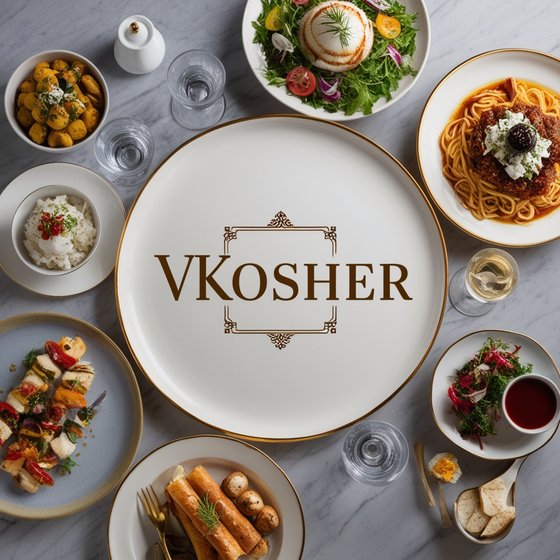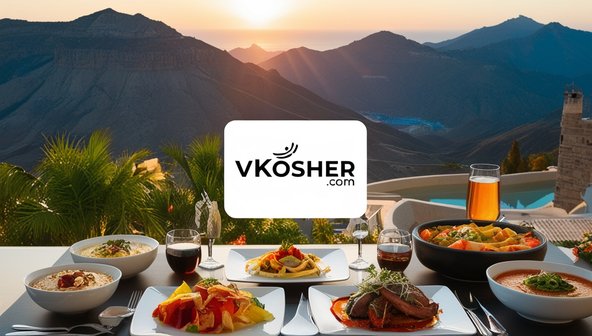Introduction to Kosher Meal Prep
Kosher meal preparation is more than just cooking; it is a process deeply rooted in Jewish tradition, following the dietary laws outlined in the Torah. For those who keep kosher, meal prep isn't merely about organizing meals for the week; it's a spiritual practice that requires adherence to a specific set of rules. These rules govern everything from the types of foods that can be consumed to the way these foods are prepared and stored. Whether you are new to kosher meal prep or looking to enhance your existing practices, understanding the fundamentals is crucial to maintaining the integrity of these dietary laws.
The Foundation of Kosher Meal Prep
At its core, kosher meal prep is based on the separation of meat and dairy products, the use of kosher-certified ingredients, and the proper handling of foods according to Jewish law. One of the first steps in kosher meal prep is ensuring that your kitchen is equipped with the necessary tools to maintain this separation. This typically includes having separate sets of utensils, cookware, and even sinks for meat and dairy. Additionally, any processed foods must be certified kosher, meaning they have been prepared in accordance with kosher standards under rabbinical supervision.
Choosing Kosher Ingredients
When it comes to selecting ingredients for your kosher meals, the process can be more involved than for non-kosher cooking. Kosher meat, for instance, must come from animals that have cloven hooves and chew their cud, such as cows and sheep. These animals must also be slaughtered in a specific manner known as shechita, which is performed by a trained individual known as a shochet. Additionally, certain parts of the animal, like the sciatic nerve and certain fats, are not kosher and must be removed.
For dairy products, it is essential to ensure that they come from kosher-certified sources, particularly when it comes to cheeses and yogurts. These products often require special certification due to the complexity of their production processes, which can involve non-kosher animal rennet.
Fruits and vegetables are generally kosher, but they must be thoroughly inspected for insects, which are not kosher. This inspection is particularly important for leafy greens and herbs. Additionally, the produce must be free from any cross-contamination with non-kosher items.
The Importance of Kosher Certification
Kosher certification plays a critical role in kosher meal prep. This certification, indicated by a symbol on packaging, ensures that the product has been prepared according to kosher laws. There are various organizations worldwide that provide kosher certification, and each has its own symbol. Some of the most widely recognized symbols include the OU (Orthodox Union), Star-K, and OK. When preparing kosher meals, it is important to choose products that carry one of these certifications to guarantee that they meet kosher standards.
Planning Your Kosher Meals
Planning is an essential part of kosher meal prep. Since keeping kosher involves specific dietary restrictions, meal planning helps ensure that you have all the necessary ingredients on hand and that your meals are balanced and varied. Many kosher meal prep enthusiasts recommend planning a week’s worth of meals in advance, taking into consideration the variety of foods allowed under kosher law.
A typical kosher meal plan might include a range of dishes that are suitable for different times of the day. For instance, breakfast might consist of dairy products like yogurt, eggs, and fresh fruit, while lunch could feature a dairy-free salad with kosher meat or fish. Dinner could be a more elaborate affair, with dishes like roasted chicken, vegetables, and a kosher dessert.
Kosher Meal Prep Techniques
The techniques used in kosher meal prep are as important as the ingredients themselves. For example, when cooking meat, it is essential to ensure that all blood is drained from the meat, as blood is not kosher. This is usually done by soaking the meat in water, salting it, and then rinsing it thoroughly.
Cooking utensils and appliances must also be kosher. This means that they should either be new and have never been used with non-kosher food, or they must be properly kashered, a process that involves purging them of any non-kosher residue. The method of kashering varies depending on the material of the utensil or appliance and how it was previously used.
When it comes to cooking, the separation of meat and dairy is strictly enforced. This means that meat and dairy cannot be cooked together, and separate utensils and cookware must be used for each. Additionally, after consuming meat, a waiting period of several hours (commonly six) is required before consuming dairy, and vice versa.
Storing Kosher Meals
Once your kosher meals are prepared, proper storage is crucial to maintaining their kosher status. Meat and dairy products must be stored separately, ideally in different sections of the refrigerator or freezer. If this is not possible, they should at least be wrapped and labeled clearly to avoid any mix-ups.
It is also important to note that reheating kosher food must be done with the same care as the initial preparation. For instance, if a meat dish was cooked in a meat-only oven, it should not be reheated in an oven used for dairy.
Challenges in Kosher Meal Prep
While kosher meal prep can be rewarding, it is not without its challenges. One of the primary difficulties is sourcing kosher ingredients, especially if you live in an area with limited access to kosher-certified products. This can be mitigated by ordering kosher products online or by frequenting specialty stores that cater to the kosher market.
Another challenge is the time and effort required to maintain a kosher kitchen. From the initial kashering of utensils and appliances to the ongoing separation of meat and dairy, keeping a kosher kitchen requires diligence and organization. However, many find that the spiritual rewards of keeping kosher far outweigh the challenges.
The Spiritual Aspect of Kosher Meal Prep
For those who observe kashrut, the laws of kosher, meal prep is more than a practical task; it is a form of spiritual practice. Each step in the process, from selecting kosher ingredients to properly storing meals, is an opportunity to connect with Jewish tradition and express one's faith. The discipline required to maintain a kosher kitchen is seen as a way to bring holiness into everyday life, turning the simple act of cooking into a religious experience.
Conclusion: The Joy of Kosher Meal Prep
Kosher meal prep is a unique blend of tradition, discipline, and creativity. By adhering to the dietary laws of kashrut, individuals not only fulfill religious obligations but also experience the satisfaction of preparing meals that are both spiritually and physically nourishing. Whether you are new to kosher meal prep or have been doing it for years, there is always more to learn and explore in this rich culinary tradition. Embrace the process, enjoy the meals, and take pride in the meticulous care that goes into every aspect of kosher cooking.




